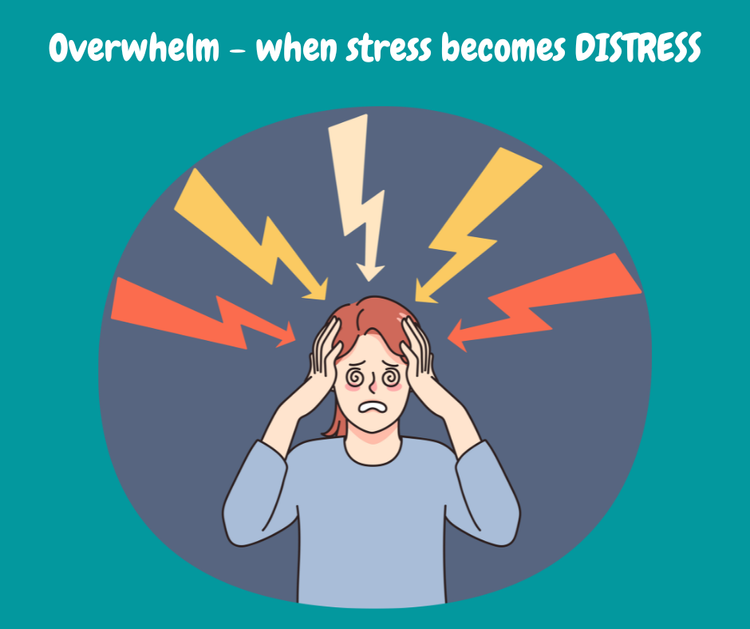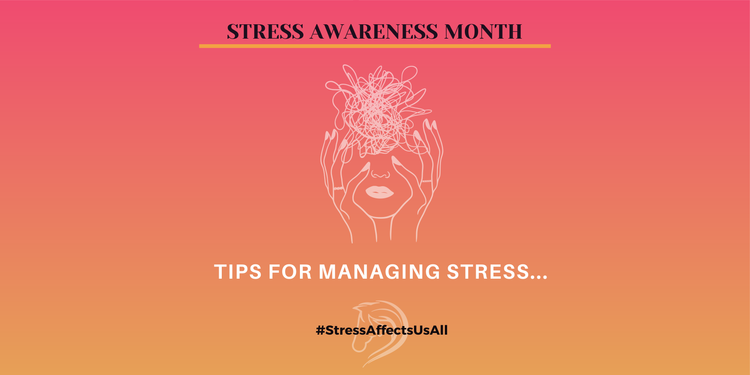One Step Forward, Two Steps Back: My Journey with Stress

Anyone who follows me on Instagram (@stronginthesaddle_) knows I love the gym. Specifically, I love lifting heavy. There’s something deeply satisfying about challenging my body to move weight that most people wouldn’t think a 5ft2 girl could shift. It’s physical, it’s focused, and it’s a kind of stress I live for.
But here’s the part that doesn’t show up in the videos or the captions: outside of the gym, my relationship with stress is... complicated.
In the rest of life—career, relationships, big decisions—I’ve noticed a pattern. Every time I make a bold move or take a step forward, I almost immediately pull back. It’s like I’m hardwired to self-sabotage, to retreat into a version of myself I’ve already outgrown. Even when it’s something I wanted—a new opportunity, a dream project—my default reaction is panic. I go inwards, shut down, and question everything.
You’d think getting what you asked for would feel like a win. But for me, it often triggers a stress response that looks a lot like fear.
The thing is, I didn’t even realise I was doing this for the longest time. I used to bury any kind of stress or discomfort so deep it couldn’t possibly interfere with my day. And that worked—until it didn’t.
Eventually, the pressure built up so much that it all blew up. My career felt stuck. My relationships were surface level. And I was going through the motions, pretending everything was fine when it wasn’t.
That breaking point, as awful as it felt, gave me something important: awareness. I started to see that not all stress is bad—but all stress needs to be acknowledged. I stopped trying to bulldoze through it or bury it. Now, when it shows up, I pause and ask myself: Is this something I need to sit with and work through? Or is this the kind of fear that just needs a firm kick up the arse?
Because here’s the truth: there’s no one-size-fits-all fix. Stress isn’t the enemy. It’s information. It’s asking something of you—sometimes it’s patience, sometimes it’s courage, and sometimes it’s boundaries.
This pattern isn’t unique to me—and I know a lot of women in the equine industry will get what I’m talking about.
We’re in a world that praises grit. Being hardworking, capable, unbothered. There’s an expectation—spoken or not—that you just get on with it. That you don’t crack under pressure. That you keep showing up, mucking out, riding, running your business, caring for your family, and making it all look manageable.
And God forbid you show emotion or admit you’re stressed—because then you’re “being dramatic” or “not cut out for it.”
So, we push through. We carry the stress, pretend we’re fine, and keep going because we don’t want to be seen as weak. We don’t want to be written off as “just another emotional woman.” But here's the problem: suppressing what you’re feeling doesn’t make you stronger. It just makes the fallout messier when it finally catches up with you.
I used to think resilience meant being unaffected. Now, I know it means being aware. It means recognising when you’re under pressure, knowing what you need, and being honest enough to say, “This is hard.” That’s not weakness—that’s leadership. That’s emotional maturity. That’s being someone others can actually trust, because you're not hiding behind a mask of "fine."
These days, when stress hits, I try to be more intentional instead of reactive. I’ll ask myself simple questions: Why am I feeling this way? What’s really going on underneath this tension?
Some people like to journal—I tend to process things in my head, or out loud when I need to get clarity. I try to get to the root of it, and then I check in with myself: What’s right for me right now?
Do I need to rest and give myself some time? Or will I actually feel better if I just get up and crack on with it?
And I’m honest about that. Sometimes I genuinely do need a breather—an hour, a day, something to help me reset. But I never let it spiral into avoidance. Because most of the time, once I take that first step toward the thing I’m resisting, that’s all the catalyst I need. The pressure lifts, my focus comes back, and I remember I’m more than capable of handling what’s in front of me.
If you’re reading this and any of it feels familiar—if you’ve ever found yourself pulling back after something exciting, or carrying a quiet weight you don’t talk about because you don’t want to seem “too much”—I hope this makes you feel a little less alone.
Stress isn’t a sign that you’re not coping. Sometimes it’s just a sign that you’re growing. And no, you don’t need to pretend it’s not hard. You just need to be real with yourself, and strong enough to keep moving—even if it’s one small step at a time.





